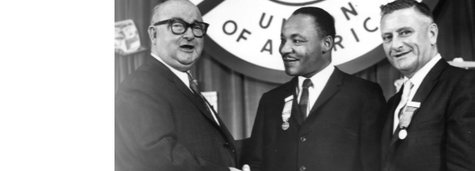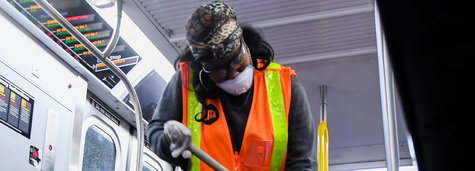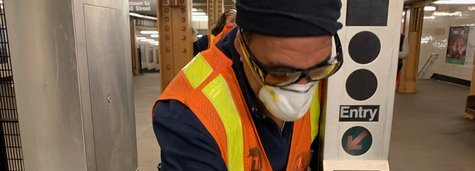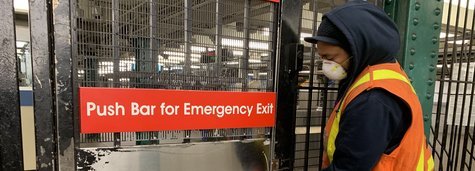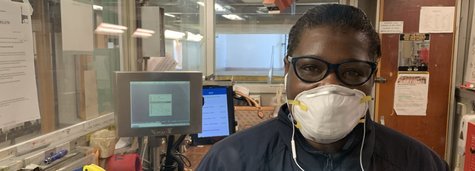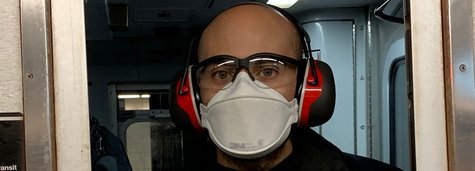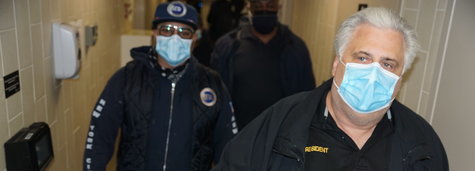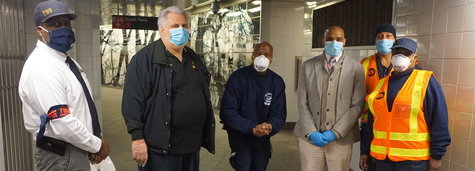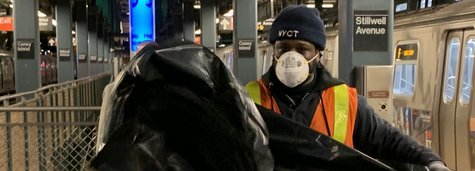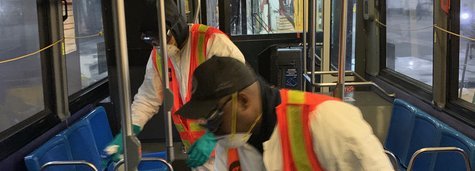60 Years Ago, a Fight for Survival and the Birth of MaBSTOA
 Click on the photo to see photos of the 1962 strike.
Click on the photo to see photos of the 1962 strike.
March 2022 marks the 60th anniversary of one of the most significant strikes in the union’s history. More than 7,500 workers who operated the private bus lines in Manhattan and the Bronx walked off the job on March 1, 1962. The union had struck the lines twice before – in 1941 and 1953 – over contract disputes. But this strike was different. This one was for survival.
A new ownership group, headed by Baltimore multi-millionaire Harry Weinberg had purchased Fifth Avenue Coach and Surface Transit private bus lines. Weinberg had made a name, and fortune for himself in real estate and by purchasing and flipping privately held transit companies.
Weinberg announced a reorganization plan that included layoffs of up to 1,500 workers, elimination of most night and weekend service and a halt to pension payments. His attorney was the nefarious Roy Cohn, who had made a name for himself as Chief Counsel to Sen. Joe McCarthy during the infamous communist witch hunt hearings in 1953.
TWU retaliated by setting a strike deadline of 4:30 P.M. on March 2, 1962 to combat Weinberg’s “drastic attack on job security, seniority, pensions, working conditions, health and welfare plans and other contract benefits.”
TWU International President Michael J. Quill told a cheering, overflow membership meeting at St. Nicholas Arena on Feb. 21, 1962: “the company’s management is not our business – ours is to protect our members. . . if this management terminates one job, we’ll strike, and we’ll ask all labor to support us.”
Then Local 100 President Daniel Gilmartin echoed Quill’s militancy, declaring, “if even one man goes, everybody goes. . . if this new management needs to learn what ‘one for all and all for one’ means in TWU, then we’ll teach them.” On March 1, 1962 Weinberg followed through on a threat to fire 29 senior workers, all just months away from a pension. Union members didn’t wait for the strike deadline. They immediately walked off the job.
With TWU support, the City of New York wrested control of the private lines from Weinberg. On March 22, the strikers voted unanimously to go back to work – with all jobs and benefits intact – under a newly created subsidiary of the Transit Authority known as the Manhattan and Bronx Surface Transit Operating Authority, or MABSTOA.

